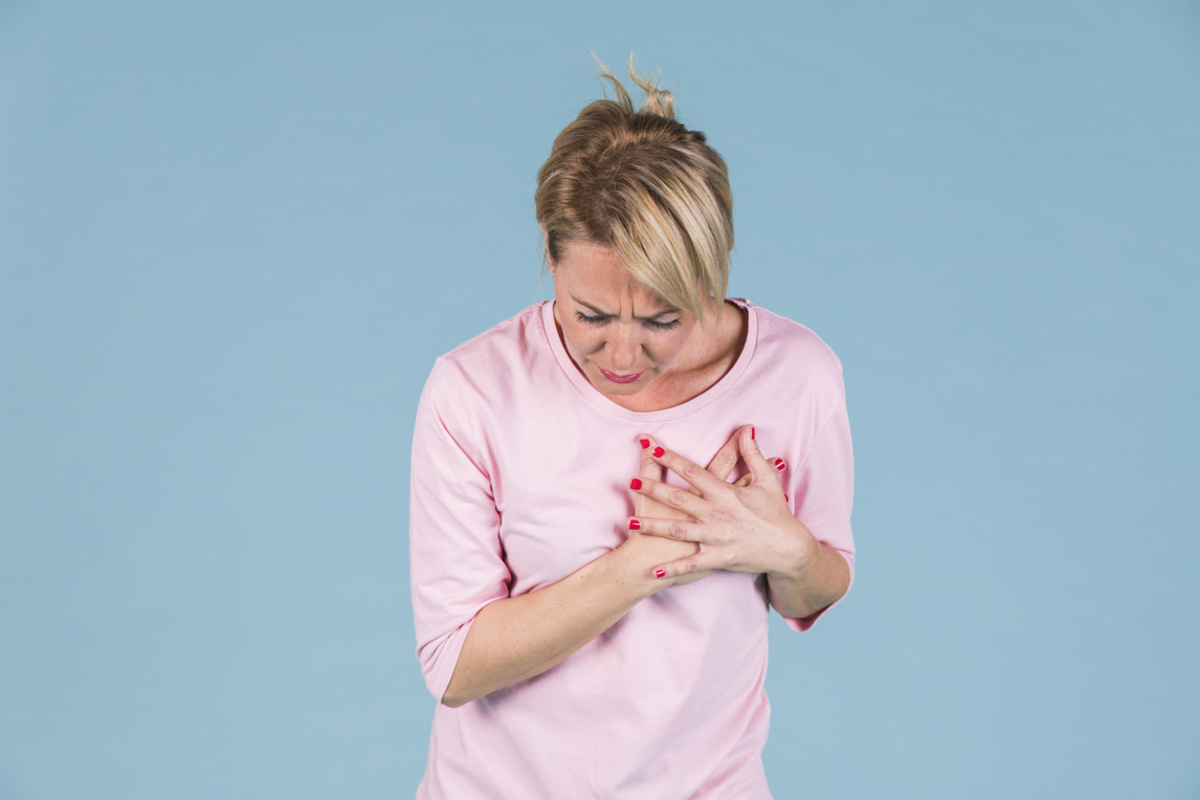Every year, we lose a significant percentage of the population around the world to heart disease. It is one of the leading killers in countries across the globe. Recognizing the warning signs of heart disease may save your life. People often ignore these important signs and end up having a heart attack, which can often be fatal.

1. Chest pain
Chest pains are common to numerous diseases, including non-fatal ones such as acid reflex. However, many people don’t realize that chest pain is a very common sign of heart disease and in particular, a heart attack. Physicians recommend that you dial 911 or get to a hospital as quickly as possible if you are experiencing chest pain and feel very unwell. You will also feel heaviness or tightness in the chest, or a just a general constricting feeling.
If you find yourself feeling chest pain when you exert yourself, for example when you exercise, you likely have a condition called angina. This means that you still need to go to a doctor to get checked out but it’s not an immediate emergency. If you let it go for too long, you may have a heart attack.
2. Feeling generally extremely unwell
Some general symptoms, such as nausea, can indicate that you are having a heart attack. Obviously, not all nausea indicates a heart attack, but if you combine nausea with other symptoms such as chest pain or severe discomfort, you should think about calling an ambulance or at least going to a clinic.
3. Experiencing stomach pains
Many people think they are experiencing chest pains and go the hospital as they are afraid they are having a heart attack when in fact, they might just be experiencing indigestion or acid reflux. This occurs because the heart and the stomach are very close to each other so it’s often hard to discern whether the pain is a result of issues with the heart or the stomach.
4. Being excessively sweaty
Many people feel extremely sweaty when they are having a heart attack. If you feel very hot and clammy and are not doing anything physically exerting or are in a very warm place, you may be having heart attack, especially if its combined with chest pain. If that is the case, then you should all an ambulance right away.
5. Pain in your legs
If you find that your legs are cramping when you walk, you should see a doctor as that could mean that you have peripheral arterial disease. This is a disease in which your extremities don’t receive adequate blood flow due to some sort of obstruction in the circulatory system. This is common in patients that smoke and those that have diabetes.
6. Pain in your arms
Many people are told to be careful if they experience any shooting pains in their arms as that can be a sign of heart attack. This is not wrong. Physicians suggest that if you do experience pain up and down your arm, particularly your left arm, and the pain goes into your neck, you are more likely to be having a heart issue than suffering from acid reflux. If you have arm pain that does not go away or if you have a history of heart disease, call an ambulance right away.
7. Jaw pain
Some people feel pain in their jaw as they have a heart attack. Some may even feel pain in their back. While these are not “classic” symptoms of heart disease, women who experience heart attacks generally don’t display typical heart attack symptoms but rather these subtle symptoms. It is important to keep this in mind as it is easy to ignore jaw or back pain, and women are therefore much less likely to go to a doctor.
8. You feel like you are choking
Angina, a type of chest pain caused by decreased blood flow to the heart, is a sign of coronary artery disease. Patients with angina often experience a restricting or choking feeling. If you continue to feel like you are choking and you have other symptoms indicative of a heart attack – such as chest or arm pain – it is best to seek medical attention.
9. Your ankles are swollen
If you find yourself with swollen ankles, you should not ignore this sign as it is actually a marker of heart failure. It can also be the result of other, less severe causes. Nevertheless, you should go see a doctor if you find yourself with swollen feet. It could also be a side effect from your blood pressure medication.
10. You feel extremely tired
One of the major symptoms of heart failure is feeling tired all the time. While it is a common and non-specific symptom, fatigue should not be ignored. If you feel tired because you have an actual reason, such as staying up late or working a lot, you probably don't need to worry. If, on the other hand, you are tired for seemingly no reason, talk to your doctor about this.
- Bray, J. E., Stub, D., Ngu, P., Cartledge, S., Straney, L., Stewart, M., ... & Finn, J. (2015). Mass media Campaigns’ influence on prehospital behavior for acute coronary syndromes: an evaluation of the Australian heart foundation's warning signs campaign. Journal of the American Heart Association, 4(7), e001927.
- Marijon, E., Uy-Evanado, A., Dumas, F., Karam, N., Reinier, K., Teodorescu, C., ... & Chugh, S. S. (2016). Warning symptoms are associated with survival from sudden cardiac arrest. Annals of internal medicine, 164(1), 23-29.
- O’Keefe-McCarthy, S., & Ready, L. (2016). Impact of prodromal symptoms on future adverse cardiac-related events: a systematic review. Journal of Cardiovascular Nursing, 31(1), E1-E10.
- Photo courtesy of SteadyHealth


Your thoughts on this